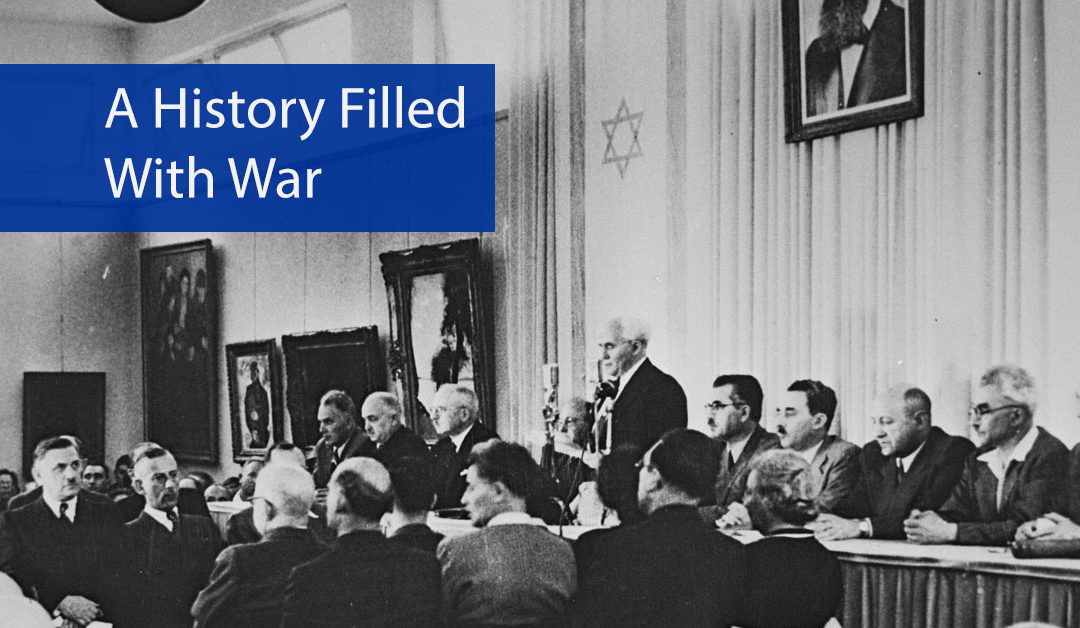Israel is a tiny country with a population of about 9 million and a landmass comparable to the state of New Jersey—the fifth smallest state in the U.S. It is 290 miles in length and only 85 miles wide. Israel’s role on the world stage should seemingly be relatively minor, yet hardly a day goes by when events in or concerning Israel do not dominate international headlines. What many today seem to overlook is that Israel didn’t just rise from the rocky land of Palestine in 1948; it has been in existence for centuries, although known by various names.
At the end of World War II with all its horrors of the Holocaust, the devastated Jewish survivors in Europe longed to travel to Palestine, their biblical homeland. Their dreams were to be delayed when Britain was placed in control of Palestine by mandate of the United Nations and with a growing dilemma: How to walk the tightrope between world opinion and the Arabs. After the shock and revulsion of the Holocaust, much of the world increasingly demanded that the Jews be allowed to emigrate to Palestine, which was thought to be a place of safety for them.
Arabs in the region were adamantly opposed to the move. Greatly frustrated by the situation, the British announced in February 1947 that control of Palestine would be ceded to the United Nations, even then a hotbed of anti-Semitism. In November 1947, the UN offered a plan for partition that would divide the region into an Arab state and a Jewish state, calling for British troops to leave Palestine by August 1948.
The Jews welcomed the proposal; the Arabs scorned it. Some British leaders felt it would be impossible for a Jewish state to flourish in the face of such hostility from the Arabs. In the interim, Jewish leaders moved forward with plans for statehood. A provisional government was established under David Ben-Gurion in March 1948. Two months later, on May 14, as Egyptian fighter-bombers roared overhead and British troops readied for departure, Ben-Gurion and his political partners gathered at the museum in Tel Aviv. At 16:00 [4:00 PM], Ben-Gurion opened the ceremony by banging his gavel on the table, prompting a spontaneous rendition of Hatikvah, soon to be Israel’s national anthem, from the 250 guests.
The following day, Israel was attacked by the Arab nations that ring her borders. Only through the grace and protection of God was Israel able to survive. Again and again over the years, this tiny island of freedom has suffered assaults directed by evil men dedicated to the annihilation of the Jewish people.
Today Israel is more isolated than ever. Security is a never-ending struggle as all of Israel’s neighbors either actively oppose her or at least harbor those who do. Terrorist groups thrive in Gaza, which shares Israel’s border with Egypt and harbors Hamas. Lebanon is home to Hezbollah, which, along with Hamas, is an Iranian proxy. The ongoing Syrian civil war has opened the door to an influx of Iran’s Revolutionary Guard, an avowed enemy of Israel.







